 August 2009 in “International Journal of Dermatology”
August 2009 in “International Journal of Dermatology” A postmenopausal woman's facial redness, acne, and excess hair were caused by too much hormone therapy for insomnia, but improved after stopping the treatment.
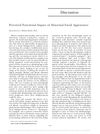 June 2003 in “Plastic and Reconstructive Surgery”
June 2003 in “Plastic and Reconstructive Surgery” People with facial disfigurements are judged more negatively, highlighting the social benefits of corrective surgery.
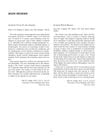 1 citations,
May 2001 in “The Cleft Palate Craniofacial Journal”
1 citations,
May 2001 in “The Cleft Palate Craniofacial Journal” The document recommends both books for medical training in aesthetic surgery and wound healing.
 April 2023 in “Authorea (Authorea)”
April 2023 in “Authorea (Authorea)” Hair transplantation can improve scars after removing a rare skin cancer.
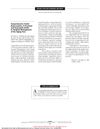 May 2004 in “Archives of Facial Plastic Surgery”
May 2004 in “Archives of Facial Plastic Surgery” The book is a detailed guide on facial rejuvenation techniques and is recommended for new facial plastic surgeons.
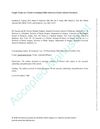 53 citations,
October 2018 in “Aesthetic Surgery Journal”
53 citations,
October 2018 in “Aesthetic Surgery Journal” Google Trends data on facial cosmetic procedures matches actual surgery numbers, showing it can help plastic surgeons understand public interest.
43 citations,
October 2011 in “Plastic & Reconstructive Surgery” Open brow lifts are still important and effective in cosmetic surgery.
 26 citations,
October 2018 in “British Journal of Dermatology”
26 citations,
October 2018 in “British Journal of Dermatology” Regular use of sunscreen may be linked to frontal fibrosing alopecia.
 3 citations,
November 2021 in “Clinical, Cosmetic and Investigational Dermatology”
3 citations,
November 2021 in “Clinical, Cosmetic and Investigational Dermatology” Platelet-Rich Plasma may improve skin health and reduce wrinkles, but more research is needed for standard treatment guidelines.
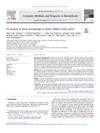 1 citations,
June 2021 in “Computer methods and programs in biomedicine”
1 citations,
June 2021 in “Computer methods and programs in biomedicine” Children with cancer had slightly more unusual facial shapes than healthy kids, but not enough to easily tell them apart.
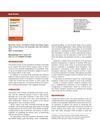 August 2014 in “Aesthetic Surgery Journal”
August 2014 in “Aesthetic Surgery Journal” Book covers all aspects of hair restoration surgery, highly recommended.
 120 citations,
July 2005 in “Dermatologic surgery”
120 citations,
July 2005 in “Dermatologic surgery” Niacinamide improves aging skin and is safe for use in cosmetics.
 16 citations,
March 2018 in “Plastic and Reconstructive Surgery – Global Open”
16 citations,
March 2018 in “Plastic and Reconstructive Surgery – Global Open” Early surgical treatment for severe facial injuries from high-energy impacts leads to better recovery.
 9 citations,
February 2018 in “Forensic Science International”
9 citations,
February 2018 in “Forensic Science International” The study could not confirm if Victor Vinnetou was Mbuyisa Makhubu and suggested more evidence, like DNA tests, is needed.
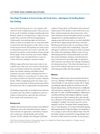 2 citations,
September 2019 in “Dermatologic Surgery”
2 citations,
September 2019 in “Dermatologic Surgery” The two-step procedure of fat grafting followed by hair grafting improves scalp and facial scar correction.
January 2016 in “Georg Thieme Verlag eBooks” Tailoring facelift techniques to individual needs improves patient satisfaction.
 January 2016 in “Georg Thieme Verlag eBooks”
January 2016 in “Georg Thieme Verlag eBooks” More East Asians are accepting and getting facial plastic surgery, with a focus on natural-looking results and using both surgical and nonsurgical methods.

Botulinum toxin-A injections in the scalp can reduce hair loss and promote new hair growth in men with certain types of baldness.
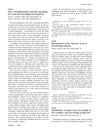 August 2009 in “Journal of Oral and Maxillofacial Surgery”
August 2009 in “Journal of Oral and Maxillofacial Surgery” Hair transplantation and micrografting are effective for facial enhancement with nearly 100% graft survival when done carefully.
 October 2024 in “Skin Appendage Disorders”
October 2024 in “Skin Appendage Disorders” PRP is popular for hair restoration but needs better research methods to confirm its effectiveness and safety.
 August 2018 in “Journal of The American Academy of Dermatology”
August 2018 in “Journal of The American Academy of Dermatology” The moisturizing cream used after a chemical peel was well tolerated and effectively moisturized the skin.
December 2022 in “Stem Cells and Development” Exosomes from stem cells help improve nerve repair in rats.
 48 citations,
July 2009 in “The Journal of Sexual Medicine”
48 citations,
July 2009 in “The Journal of Sexual Medicine” DHEA did not improve sexual function, well-being, or menopausal symptoms in postmenopausal women with low libido but caused side effects like acne and increased facial hair.
 22 citations,
September 2018 in “Medical Clinics of North America”
22 citations,
September 2018 in “Medical Clinics of North America” Facial aging is caused by natural processes and external factors, and can be managed with preventative measures and a variety of treatments tailored to individual needs.
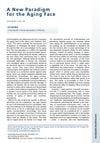 16 citations,
February 2010 in “Facial Plastic Surgery Clinics of North America”
16 citations,
February 2010 in “Facial Plastic Surgery Clinics of North America” Dr. Samuel M. Lam's article concludes that skilled facial fat grafting can effectively restore facial volume and serve as a complement or alternative to traditional face-lifting methods.
 5 citations,
September 2021 in “Journal of The American Academy of Dermatology”
5 citations,
September 2021 in “Journal of The American Academy of Dermatology” Most men with Frontal fibrosing alopecia also lose facial hair and the condition may be linked to hormone levels and sunscreen use.
2 citations,
January 2021 in “Springer eBooks” PRP is useful for hair restoration, facial rejuvenation, and wound healing.
 March 2024 in “Majallah-i taḥqīqāt-i ̒ulūm-i pizishkī-i Zāhidān/Majallah-i taḥqīqāt-i ̒ulūm-i pizishkī-i Zāhidān./Zahedan journal of researches in medical sciences”
March 2024 in “Majallah-i taḥqīqāt-i ̒ulūm-i pizishkī-i Zāhidān/Majallah-i taḥqīqāt-i ̒ulūm-i pizishkī-i Zāhidān./Zahedan journal of researches in medical sciences” Microneedling with PRP effectively reduces facial pigmentation with minimal side effects.
 July 2019 in “Facial Plastic Surgery Clinics of North America”
July 2019 in “Facial Plastic Surgery Clinics of North America” New techniques and technologies are improving facial plastic and reconstructive surgery.
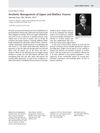 December 2017 in “Facial Plastic Surgery”
December 2017 in “Facial Plastic Surgery” The document concludes that successful treatment of upper and midface trauma should focus on restoring both appearance and function, with attention to facial structure, skin, and hair repair.

























